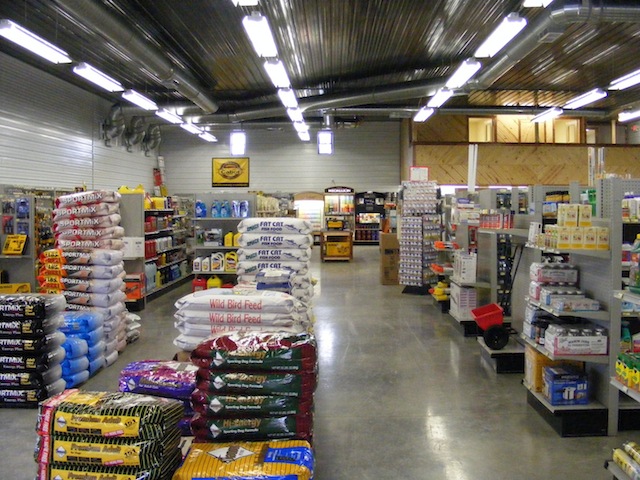It is important for any business to know how much and what type of stock they have on hand. Stock refers to all the goods a farmer has in storage. It includes all the agricultural inputs required for production of the crop. The aim of stock control is to balance the amount of inputs the farmer has in the store against the amount of the inputs used during the production cycle. The production cycle is different for different crops, and therefore the type and amount of stock as well as the period of storage will differ between crop types.
A manager will try to maximise the stock turnover while carrying the least amount of stock possible. Stock turnover usually refers to a retailer that sells the stock to an end user. However, stock turnover is an important concept in the farm situation as well. This is because most agricultural inputs have a limited shelf-life. Pesticides for example have a 2-year shelf live, after which they should not be used, unless an analysis has been performed to certify that the pesticide is still usable. The disposal of obsolete pesticides is extremely expensive, and therefore stock of pesticides should not be allowed to build up. The compounds should be used on the First in Fist out (FIFO) principal. This means that the first batch of a particular batch of pesticide that comes into the store must be used first. This principal applies not only to pesticides, but also to fertilisers, seeds and any other input that may be required. Efficient stock control, including stock rotation systems, means that old stock does not accumulate.

Stock requires control, because a shortage of stock may lead to a lack of pest control or fertilisation at critical periods. Overstocking of inputs may lead to stocks becoming obsolete, which may have serious implications on running costs of the operation. Effective stock control will minimise shrinkage by reducing errors, waste and theft. Efficient stock control reduces the risk of accidents and injury through good housekeeping, as well as reducing the costs of insurance, workers compensation payments and the time lost though injury. Farm stores will each have its own stock control systems and procedures that must be followed. It is important that all personnel that work on the farm know and understand these procedures.
Key Terms To Know When Managing Stock
Stock Management Terminology
